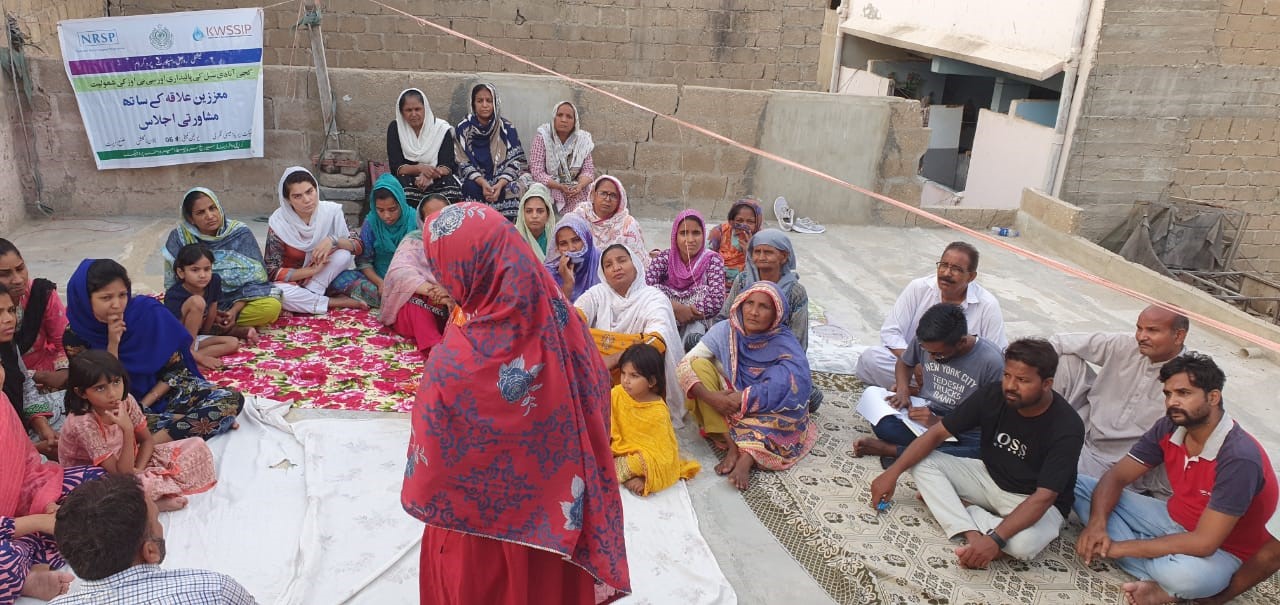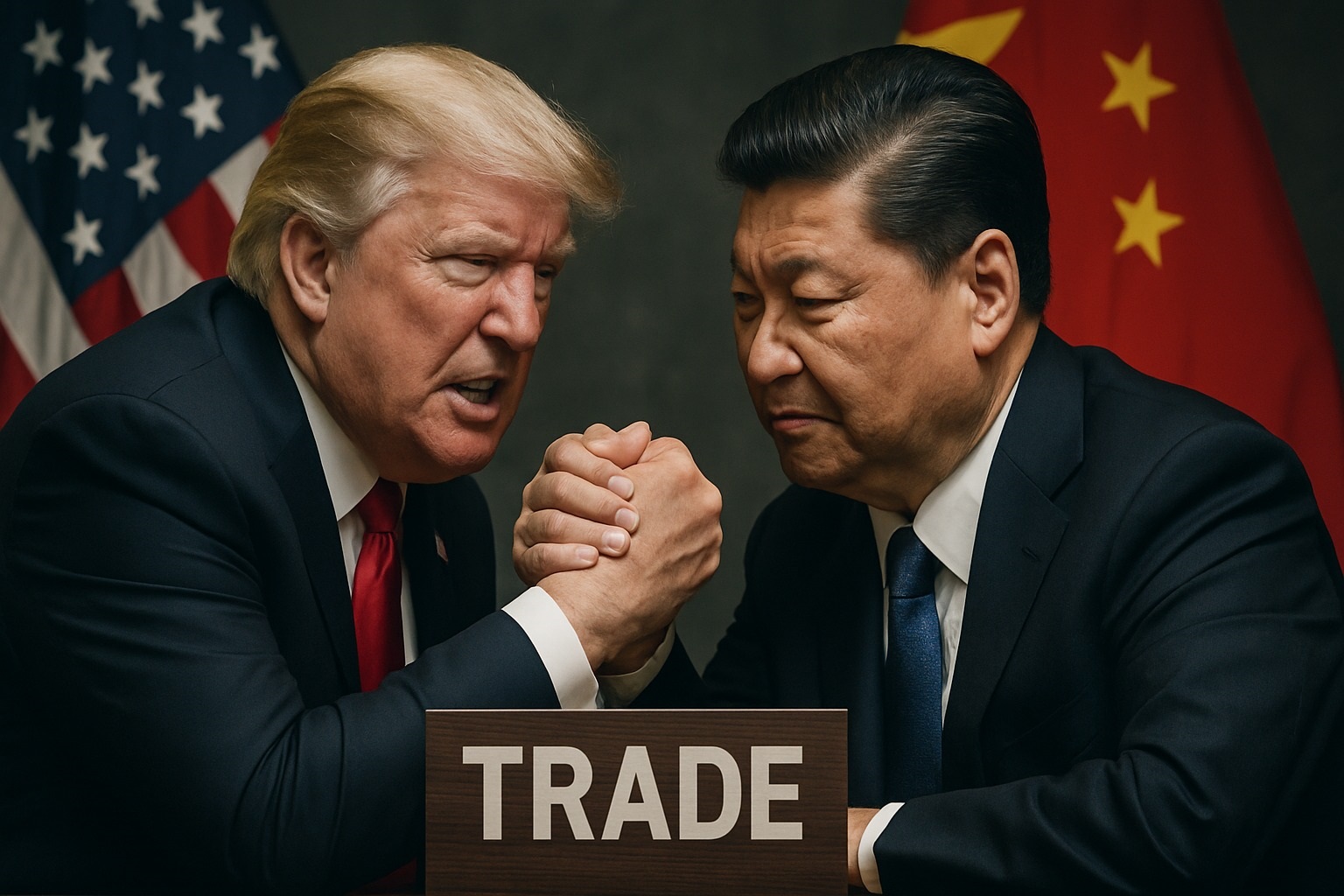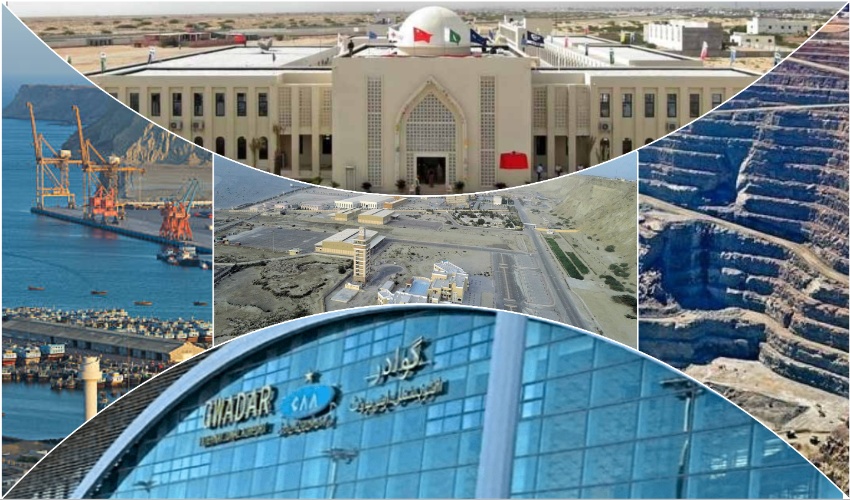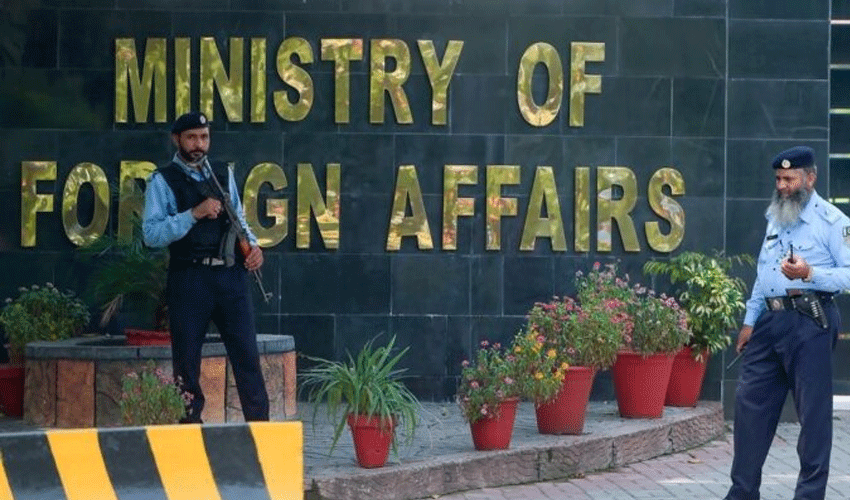Pakistan's journey towards gender equality in development initiatives has faced considerable challenges, particularly in empowering underprivileged women. Socio-cultural norms, limited educational opportunities, and entrenched gender disparities have historically marginalized women across the country, especially in rural areas and urban low-income communities, hindering their active participation in community development efforts.
In Karachi, low-income communities grapple with multiple issues, including water, sanitation, and hygiene (WASH) challenges. Despite these problems, various organizations are making significant efforts to support marginalized communities and alleviate these issues.
Among these efforts, the Karachi Water & Sewerage Services Improvement Project (KWSSIP) and the National Rural Support Programme (NRSP) have recently launched a collaborative initiative named “Strengthening of Katchi Abadi Cell and Engagement of Community-Based Organizations (CBOs).” This initiative aims to empower and foster communities by addressing WASH concerns.
Karachi Water & Sewerage Services Improvement Project (KWSSIP):
The KWSSIP, funded by the World Bank, aims to tackle Karachi's water and sewage challenges through infrastructure investments, policy reforms, and capacity building for the Karachi Water and Sewerage Corporation (KW&SC). This project seeks to enhance service provision, meet long-term goals, and address institutional constraints in one of Pakistan's fastest-growing cities. By improving KW&SC's performance, the project aims to ensure reliable water and wastewater services for Karachi's growing population.
National Rural Support Programme (NRSP):
Established in 1991, the NRSP is Pakistan's largest rural support program in terms of outreach, staff, and activities. Operating under Section 42 of the Companies Act 2017 as a not-for-profit organization, NRSP's mandate is to alleviate poverty through sustainable development initiatives. Operating in 72 districts, NRSP collaborates with over 3.8 million households via 249,019 Community Organizations, emerging as a leading force in poverty reduction and rural development.
Strengthening of Katchi Abadi Cell and Engagement of Community-based Organizations (CBOs):
NRSP has been engaged by KWSSIP to implement the “Strengthening of KatchiAbadi Cell and Engagement of Community-Based Organizations (CBOs)” initiative. This project is part of KWSSIP's broader “Series of Projects” aimed at enhancing urban infrastructure and services in low-income communities. Spanning 15 months, from March 7, 2024, to June 6, 2025, the initiative focuses on two geographical areas: Soba Nagar in District Central and EssaNagri in District East, Karachi.
Qandeel Alam, a social mobilizer for NRSP-KWSSIP leading community mobilization efforts in Karachi’s low-income areas of Essa Nagri and Soba Nagar, emphasizes the transformative impact of women's inclusion in WASH initiatives.
"When women are empowered to lead, communities thrive. Their unique insights and determination not only drive sustainable solutions but also inspire collective action towards a healthier, more equitable future," says Qandeel Alam.
Key activities and impact:
Key activities within this initiative include strengthening and capacity building of the Katchi Abadi Cell to supply bulk water, with NRSP and CBOs managing distribution from bulk meters to households in Soba Nagar and Essa Nagri. Household meters will be installed in both areas to promote water conservation and collect volumetric tariffs. Additionally, KWSSIP will handle bulk water billing, while NRSP trains CBOs for household tariff collection specifically in these two urban low-income communities. NRSP supports CBOs in collecting and depositing water tariffs monthly, contributing to improved water and sewage management in these communities.
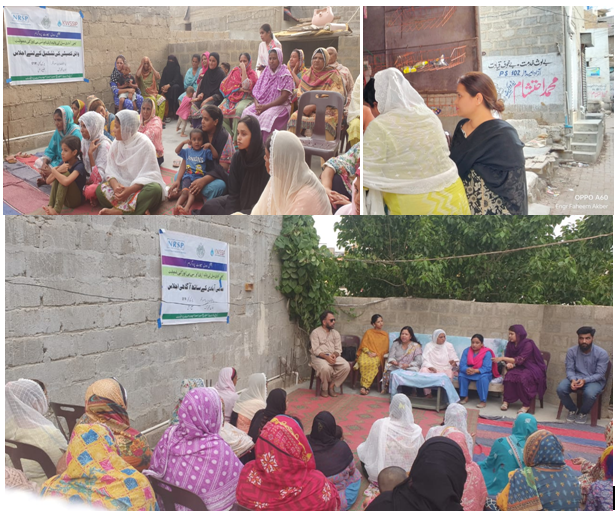
These committees not only tackle immediate challenges but also serve as catalysts for broader societal change. Women, once excluded from decision-making processes, are now at the forefront of shaping solutions that meet the specific needs of women and children in their communities. "Women are the backbone of our society. When they rise, the entire community rises with them," expressed Gender Specialist Saina Ali from KWSSIP-NRSP, highlighting the transformative power of gender equality.
Beyond tangible improvements, the initiative fosters a culture of gender equality, where women's voices are valued and respected. By empowering women to participate actively in community initiatives, KWSSIP-NRSP is breaking down barriers and challenging stereotypes, paving the way for a more equitable society where every individual can contribute meaningfully to their community's development. "Empowered women bring about empowered communities," asserts Qandeel Alam. "Their involvement ensures that our development efforts are holistic and inclusive."
Moreover, the initiative demonstrates the transformative power of grassroots efforts. It highlights the importance of community-led solutions that are grounded in local knowledge and needs. By involving community members, particularly women, in decision-making processes, KWSSIP-NRSP ensures that initiatives are effective and sustainable. This participatory approach builds trust and ownership among residents, fostering a sense of unity and collective responsibility towards common goals. "Community development is not just about infrastructure; it's about people," emphasizes Saina Ali. "When women are involved, we see more sustainable and impactful change."
The impact of empowering women in Karachi's urban low-income communities extends beyond immediate improvements in WASH facilities. It empowers individuals to advocate for their rights, access resources, and participate actively in shaping their future. As women gain confidence and leadership skills through their involvement in WASH committees, they become role models and agents of change within their communities, inspiring others to strive for progress and equality.
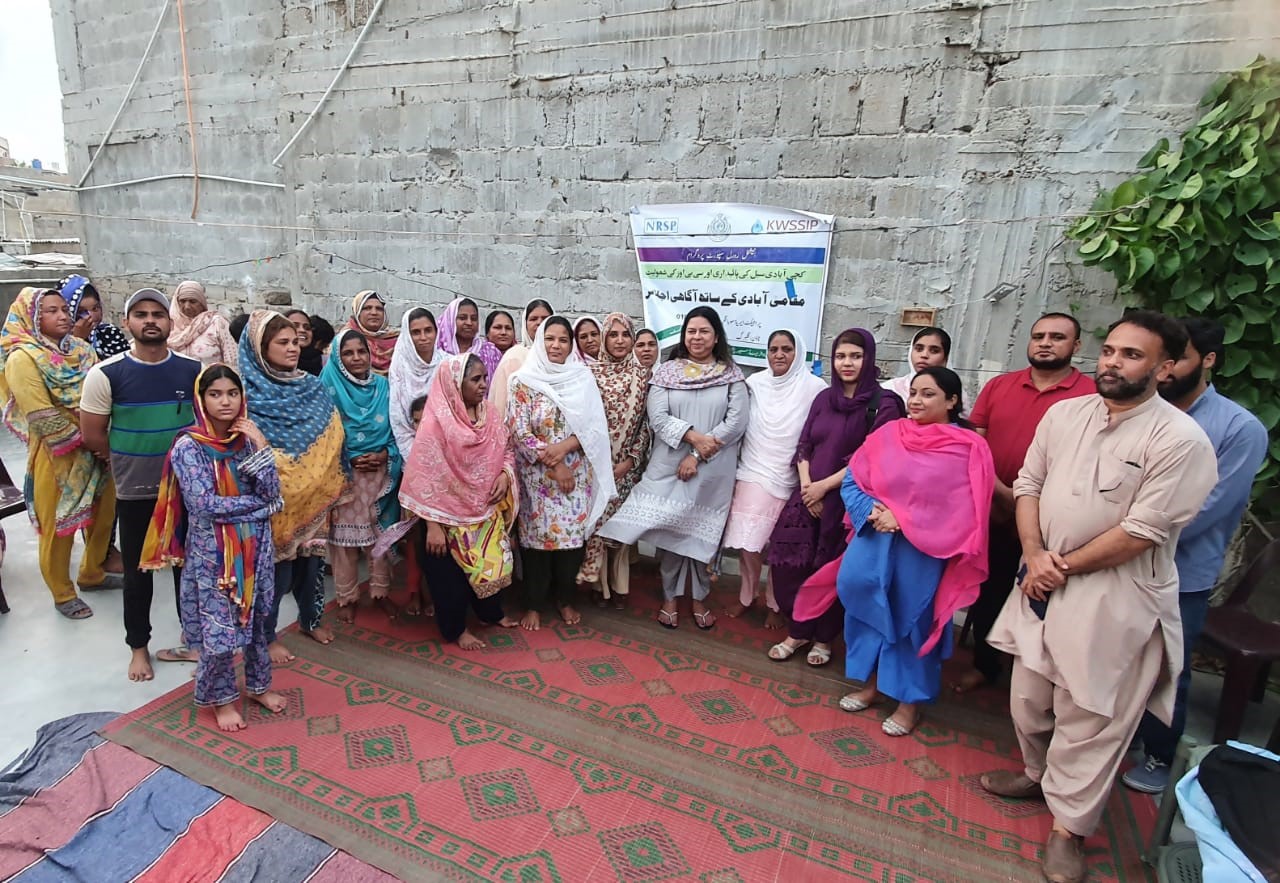
The path forward:
KWSSIP-NRSP's initiative exemplifies how investing in women's empowerment can catalyze positive change at the grassroots level. It underscores the importance of inclusive development practices that prioritize gender equality and empower marginalized communities. As similar initiatives take root globally, the story of Karachi's urban low-income communities is a powerful reminder of every community's resilience, determination, and potential when allowed to thrive.





